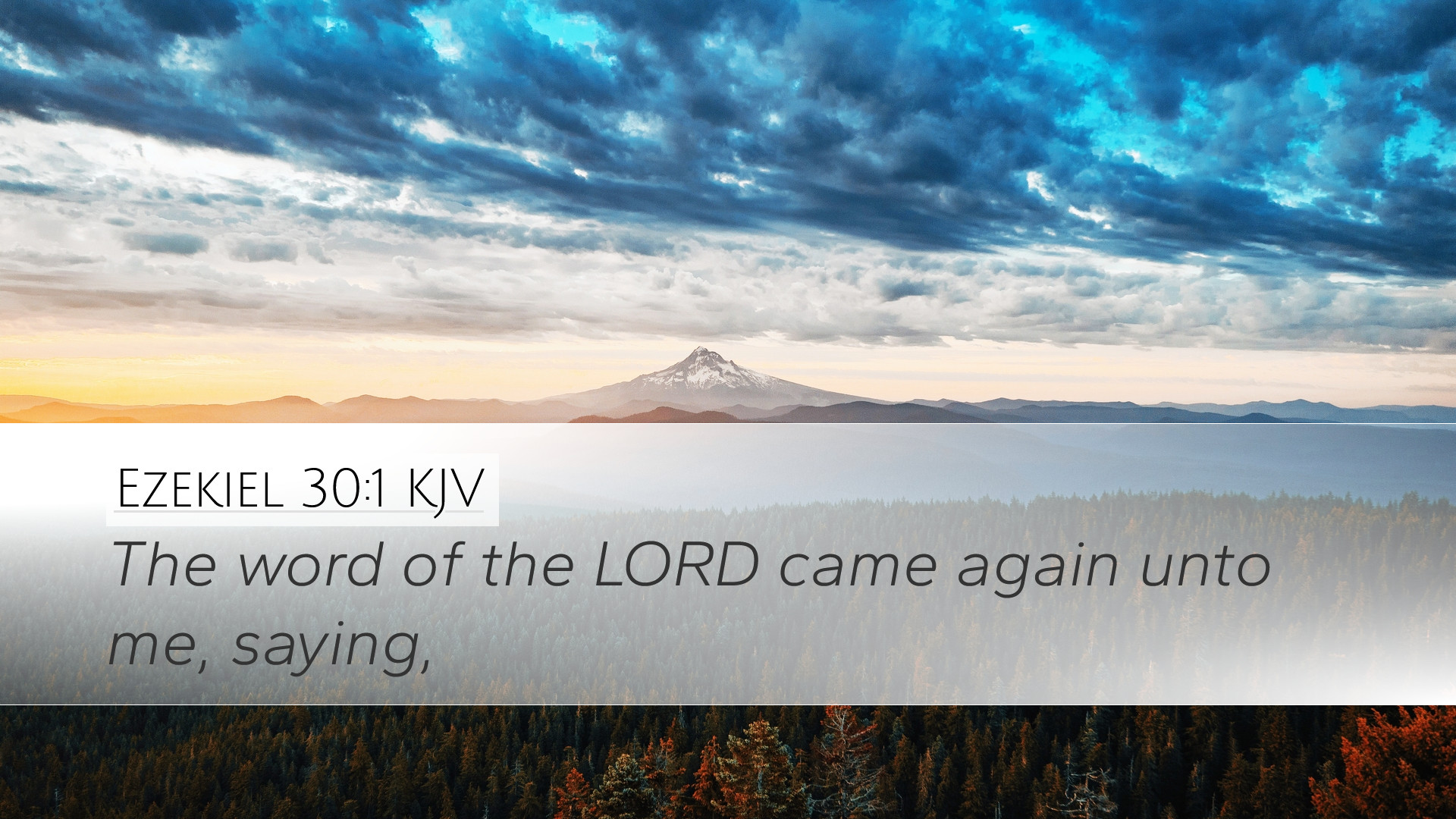Ezekiel 30:1 - Commentary Summary
Ezekiel 30:1: "The word of the Lord came again unto me, saying."
Introduction
The verse serves as a significant introductory phrase in the prophetic writings of Ezekiel. It sets the stage for a series of proclamations that deal primarily with judgment and the fate of nations, particularly Egypt, which is the focus of this chapter.
Contextual Analysis
This verse reflects the ongoing communication between God and His prophet. In the prophetic literature, the introduction "the word of the Lord came" is common and signifies divine authority. Ezekiel, being in Babylonian exile, addresses not only the people of Israel but also the surrounding nations, including Egypt, which was viewed as a powerful adversary.
Thematic Insights
- The Voice of God: The repetition of "the word of the Lord" emphasizes God's continual revelation and the importance of heeding His voice. It underscores the belief that God actively engages with humanity through divinely inspired messages.
- Impending Judgment: This chapter marks a pivotal point where judgment is articulated against powerful nations. It reflects the socio-political circumstances of the time, where God's displeasure with nations that oppose His people is pronounced.
- Prophetic Responsibility: Ezekiel's role as a prophet is highlighted through this declaration. The prophet is not merely a passive receiver but an active communicator of God’s will, warning nations and people of impending doom.
Commentary Insights
Matthew Henry's Commentary: Henry emphasizes the seriousness of receiving a fresh message from God. He notes that the word of the Lord is a call to obedience and a warning of judgment. The prophet's mission is to declare God's will to a stubborn people, and this verse encapsulates that urgency.
Albert Barnes' Notes: Barnes highlights that this announcement is a precursor to more detailed oracles and contains a divine summons to Ezekiel. He argues that this verse illustrates how God's revelations were timely and relevant to the historical context of the Israelites in exile. He also points out that the focus will be on Egypt, a nation significant for its idolatry and arrogance against God's chosen people.
Adam Clarke's Commentary: Clarke interprets this verse as a demonstration of God's sovereignty. He remarks that through Ezekiel, God is dismantling the false security that Israel may have felt in the shadow of powerful nations like Egypt. Clarke’s analysis involves acknowledgement of the spiritual and moral decay of the nations addressed, which serves as a reminder of the consequences of turning away from God.
Application for Today
This verse prompts contemporary readers to reflect on their own receptivity to divine communication. It calls to attention the importance of being attuned to God’s voice amid daily life distractions. The theme of impending judgment echoes throughout history and reminds believers of the need for repentance, faithfulness, and the pursuit of righteousness.
In denominational settings, the urgency conveyed through Ezekiel's prophetic declarations serves as a call for leaders to address the ethical and moral issues facing their congregations and society at large, encouraging a return to a biblically centered worldview.
Conclusion
Ezekiel 30:1 is a profound reminder of God’s ongoing revelations to His servants. It places Ezekiel's ministry firmly within the context of divine judgment and prophetic responsibility. As we study this passage, let us be challenged not only to recognize God’s authority but also to respond appropriately, both as individuals and as a community of faith.


